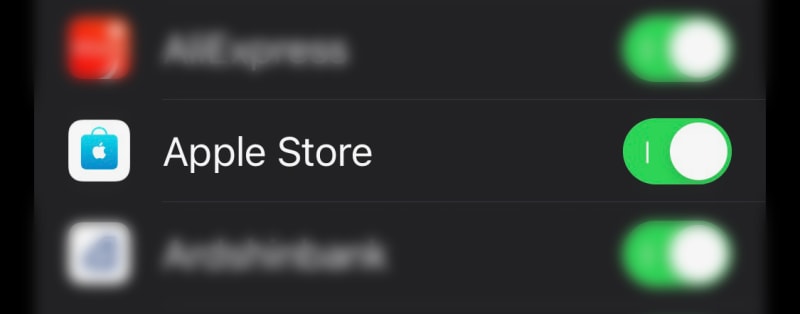Multi-option Switch/Toggle component for React

innrVoice
Posted on October 10, 2023

We all got accustomed to the switch UI button element thanks to IOS and Android. They look a bit different but convey a simple idea of switching between two states like “on” and “off”.
But what if I need more than one option to switch between?
This simple idea motivated me to start coding my own take at Switch component for React. I came up with some new concepts like handling switch dragging with snap to option, supporting mobile touch events and options for UI customisation while I was writing my shiny code 😎.
So after some time a new npm library was born…
react-custom-switcher
“Multi-option Switch/Toggle component for React with dragging, snap and customisable UI” as I wrote it in the docs.
Library exposes the CustomSwitcher React component that lets you easily create something like this:
Or you can experiment more and come up with something like this:
You can think up a lot of different use cases for such a component: to rate something, to switch between tabs or images, or select some needed setting.
In order to create switchers like this, you need to know how to use the CustomSwitcher…
The API
CustomSwitcher component accepts a list of props corresponding to ICustomSwitcherProps interface:
export interface ICustomSwitcherProps<OptionValue = unknown> {
options: CustomSwitcherOption<OptionValue>[];
value: OptionValue;
containerWidth: number;
variant?: CustomSwitcherVariant;
switchSize?: number;
dragEnabled?: boolean;
disabled?: boolean;
scaleWhileDrag?: boolean | number;
cssOverrides?: CSSOverrides;
callback(currentValue: OptionValue): unknown;
}
Lets look at them one by one.
options
(required, type: CustomerSwitcherOption[])
Required array of options to switch between. Every option is array should have a shape corresponding to CustomSwitcherOption:
export type CustomSwitcherOption<OptionValue> = {
value: OptionValue;
label?: string | React.ReactElement;
color?: string;
};
value
(required, type: OptionValue)
A value from options where switch will be set by default. You can use it as a controlled value.
containerWidth
(required, type: number)
Width of the container where all the options will be rendered.
variant
(optional, defaults to ’primary’, type: CustomSwitcherVariant)
export type CustomSwitcherVariant = 'primary' | 'secondary';
There are only two basic variants of CustomSwitcher UI. All the customisations are based on one of those variants.
The anatomy of primary variant
Primary variant has all the elements like switch, division line, divisions and options labels at the bottom.
Switch is filled and background color is transitioned in case optional color properties were provided in options array.
The anatomy of secondary variant
Secondary variant has only main switch and labels at the center of divisions areas. Divisions and division line elements are hidden but this can be overridden by cssOverrides prop (see below).
Switch element is transparent but has a border. Border color is transitioned in case optional color properties were provided in options array.
switchSize
(optional, type: number)
As is.
dragEnabled
(optional, defaults to true, type: boolean)
You can disable dragging and it can be useful in some cases, for example when using value as a controlled value.
disabled
(optional, defaults to false, type: boolean)
In case you need to disable interaction with CustomSwitcher.
scaleWhileDrag
(optional, defaults to true, type: boolean | number)
You can turn off scaling of switch element while dragging by providing false. Or you can define a custom scale by providing a number, e.g 1.5 will mean a 150% switch size while dragging like when using CSS scale property.
cssOverrides
(optional, type: CSSOverrides)
You can pass an object of CSS overrides corresponding to this shape:
export type CSSOverrides = {
cursorDefault?: CSSProperties['cursor'];
cursorGrab?: CSSProperties['cursor'];
cursorGrabbing?: CSSProperties['cursor'];
cursorDisabled?: CSSProperties['cursor'];
switch?: CSSProperties;
switchDisabled?: CSSProperties;
division?: CSSProperties;
divisionLine?: CSSProperties;
label?: CSSProperties;
};
With this you can add and/or modify existing CSS properties of different elements and some behaviours.
callback
(required, type: (currentValue: OptionValue) => unknown)
A callback which is fired when user selects an option either by using drag or just clicking on needed option.
Last words
I hope you enjoyed the ride and that some of you might find react-custom-switcher npm library useful.
And a couple of useful links:
- react-custom-switcher on GitHub
- react-custom-switcher on npm
- all react-custom-switcher examples on codesandbox
Thank you!

Posted on October 10, 2023
Join Our Newsletter. No Spam, Only the good stuff.
Sign up to receive the latest update from our blog.




